
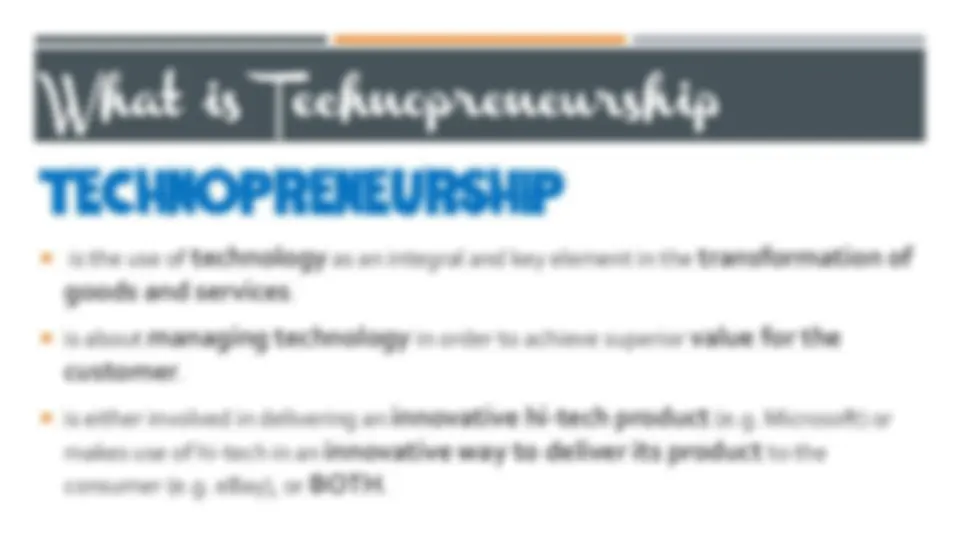




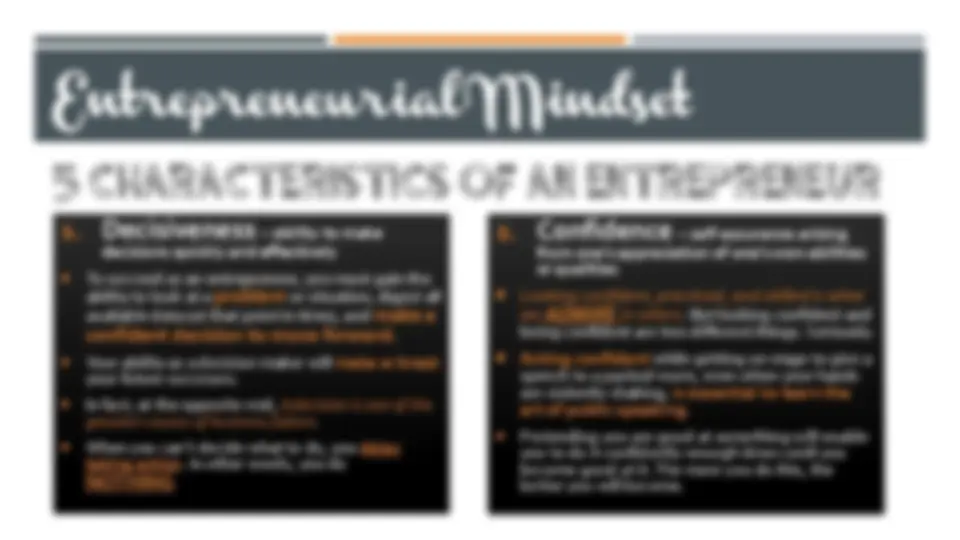
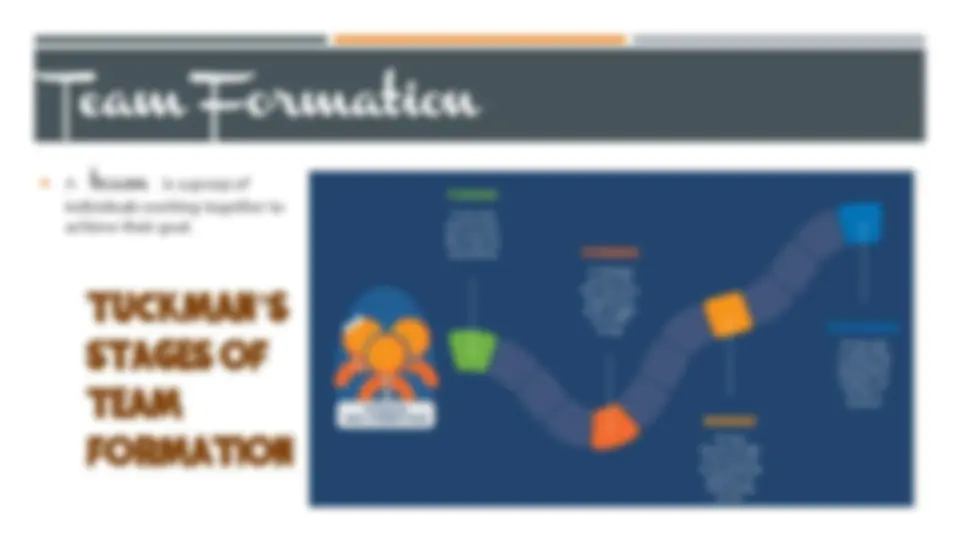
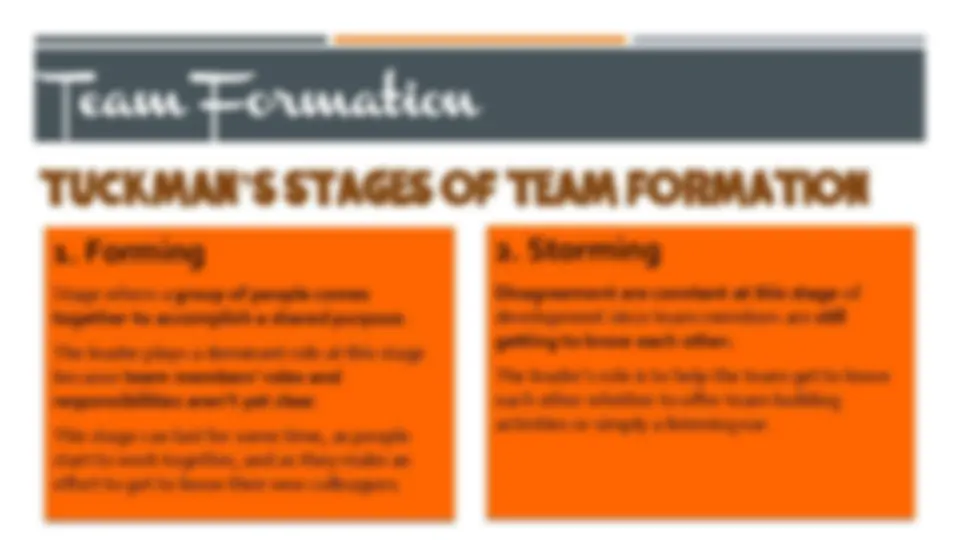
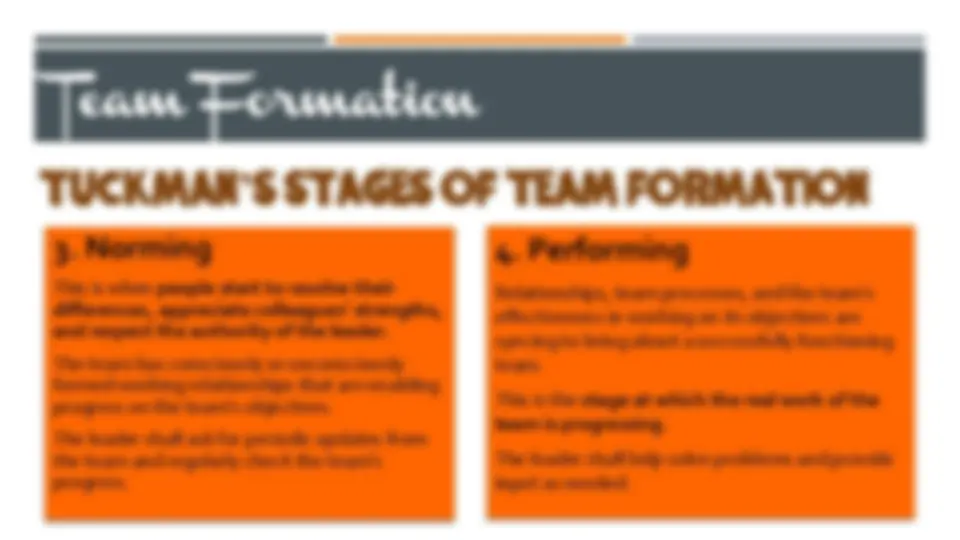


Study with the several resources on Docsity

Earn points by helping other students or get them with a premium plan


Prepare for your exams
Study with the several resources on Docsity

Earn points to download
Earn points by helping other students or get them with a premium plan
Community
Ask the community for help and clear up your study doubts
Discover the best universities in your country according to Docsity users
Free resources
Download our free guides on studying techniques, anxiety management strategies, and thesis advice from Docsity tutors
Provides a clear overview of technopreneurship fundamentals Defines key terms, roles, and the importance of technology in entrepreneurship Covers the basic mindset and skills required for technopreneurs Suitable for beginners starting their journey in tech business
Typology: Slides
1 / 16

This page cannot be seen from the preview
Don't miss anything!










Prepared and Presented by: Glaiza Mae Gonzales / DIET Instructor
Technology action
into profitable commercial
Ideas – the indispensable start-up ingredient all inventions and innovations need. Invention
Products – are physical items that
Services – are activities that provide
is an entrepreneur who uses cutting-edge technology to develop new business. (Daniel Mankani, 2003) is an entrepreneur who involves himself in technological changes in producing goods and services for his organization. (Sarimah Hanim & Abd. Rashid,2008) are entrepreneurs who use technology as their driven factor in transforming resources into goods and services , creating an environment conducive to industrial growth”
DIFFERENCES? ENTREPRENEUR TECHNOPRENEUR
5 Characteristics of an Entrepreneur
1. Decisiveness – ability to make decisions quickly and effectively To succeed as an entrepreneur, you must gain the ability to look at a problem or situation, digest all available data (at that point in time), and make a confident decision to move forward. Your ability as a decision maker will make or break your future successes. In fact, at the opposite end, indecision is one of the greatest causes of business failure. When you can’t decide what to do, you delay taking action. In other words, you do NOTHING. 2. Confidence – self-assurance arising from one’s appreciation of one’s own abilities or qualities Looking confident, practiced, and skilled is what we ADMIRE in others. But looking confident and being confident are two different things. Seriously. Acting confident while getting on stage to give a speech to a packed room, even when your hands are violently shaking, is essential to learn the art of public speaking. Pretending you are good at something will enable you to do it confidently enough times until you become good at it. The more you do this, the better you will become.
5 Characteristics of an Entrepreneur
3. Accountability – willingness to accept responsibility The entrepreneurial mindset comes from taking responsibility for your actions and outcomes. You need to internalize and accept that: Everything that happens at work – YOU are responsible for. Everything that happens to your business – YOU are responsible for. Whether you succeed or fail, it is YOUR responsibility. From this moment forward, you must accept responsibility for everything in your life and hold yourself accountable to it. 4. Resilience – capacity to recover quickly from difficulties As an entrepreneur, you will need to learn to deal with making mistakes and failing. They are inevitable and a part of your growth. Success rarely happens in a straight line. Taking wrong turns and making mistakes is something that happens to everyone. Resilience enables you to think, act, and move iteratively — making small, incremental corrections along the way.
A team is a group of individuals working together to achieve their goal. Tuckman ’ s Stages of Team Formation
Tuckman ’ s Stages of Team Formation
1. Forming Stage where a group of people comes together to accomplish a shared purpose. The leader plays a dominant role at this stage because team members' roles and responsibilities aren’t yet clear. This stage can last for some time, as people start to work together, and as they make an effort to get to know their new colleagues. 2. Storming Disagreement are constant at this stage of development since team members are still getting to know each other. The leader’s role is to help the team get to know each other whether to offer team building activities or simply a listening ear.